The ICD Combo Device (Only Surgery) Cost in Turkey approximately starts from TRY 226050 (USD 7500)
An ICD is a device implanted in the body of a patient whose heartbeats are abnormal and can cause them to faint, experience sudden cardiac arrest or other life-threatening conditions. This device detects abnormal rhythm of the heart and helps patients to take their heart rate to normal. It is used in patients suffering from ventricular arrhythmia, ventricular fibrillation, and cardiac arrest. ICD is the first-line treatment for such diseases. It is made up of a pulse generator which includes a battery and several leads or wires. The pulse generator is inserted under the skin in the chest area or just below the collarbone and the leads are inserted into the heart. The main benefit of having an ICD device combo surgery is that it is not an open-heart surgery, can be performed while the patient is asleep in a couple of hours. When ICD finds an abnormal heart rhythm, it delivers an electric shock to the heart that restores the heart to normal rhythm.
Turkey has been investing huge sums of money in building its medical tourism. Hence, the hospitals in Turkey offer a fair price for the ICD Combo Device Surgery. The Turkish government has also been taking special initiatives to provide translational facilities to allow proper communication. Translational services in English, German, Arabic, and Russian are provided when you connect with a hospital or a clinic. Due to affordable medical treatment, cheaper cost of living and well-qualified and highly experienced doctors and surgeons, Turkey is becoming an important medical destination in the world.
The modern cost of ICD Combo Device Surgery is quite lower than treatment in other countries. The cost of treatment depends on the type of hospital you choose, type of surgery, type of sedation or anesthesia to be used, patient’s diagnosis and general health. The hospitals in Turkey start the treatment timely and promptly, eliminating the need for preliminary waiting.
Treatment cost

Types of ICD Combo Device (Only Surgery) in Medicana International Istanbul and its associated cost
| Treatment Option | Approximate Cost Range (USD) | Approximate Cost Range (TRY) |
|---|---|---|
| ICD Combo Device Surgery (Overall) | 8187 - 8891 | 249281 - 262811 |
| ICD with Dual-Chamber Pacemaker | 8743 - 9065 | 261504 - 284142 |
| ICD with Single-Chamber Pacemaker | 8410 - 8782 | 246401 - 268403 |
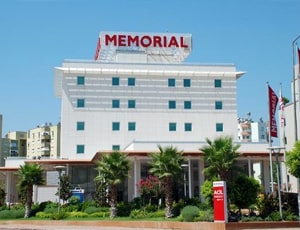
Types of ICD Combo Device (Only Surgery) in Memorial Antalya Hospital and its associated cost
| Treatment Option | Approximate Cost Range (USD) | Approximate Cost Range (TRY) |
|---|---|---|
| ICD Combo Device Surgery (Overall) | 8483 - 8718 | 248788 - 259144 |
| ICD with Dual-Chamber Pacemaker | 8680 - 9041 | 259813 - 276650 |
| ICD with Single-Chamber Pacemaker | 8187 - 8712 | 253183 - 264096 |
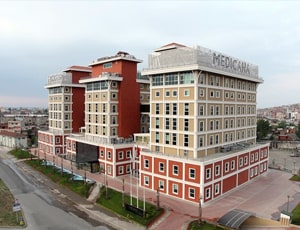
Types of ICD Combo Device (Only Surgery) in Medicana International Samsun Hospital and its associated cost
| Treatment Option | Approximate Cost Range (USD) | Approximate Cost Range (TRY) |
|---|---|---|
| ICD Combo Device Surgery (Overall) | 8229 - 8752 | 248797 - 264333 |
| ICD with Dual-Chamber Pacemaker | 8806 - 9181 | 267951 - 272145 |
| ICD with Single-Chamber Pacemaker | 8355 - 8771 | 246212 - 261137 |

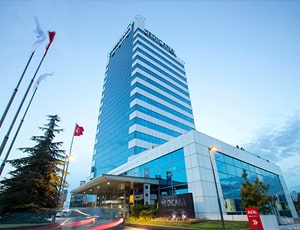
Types of ICD Combo Device (Only Surgery) in Medicana International Ankara Hospital and its associated cost
| Treatment Option | Approximate Cost Range (USD) | Approximate Cost Range (TRY) |
|---|---|---|
| ICD Combo Device Surgery (Overall) | 8340 - 8588 | 245986 - 261816 |
| ICD with Dual-Chamber Pacemaker | 8907 - 9046 | 266211 - 276681 |
| ICD with Single-Chamber Pacemaker | 8317 - 8647 | 247382 - 266501 |
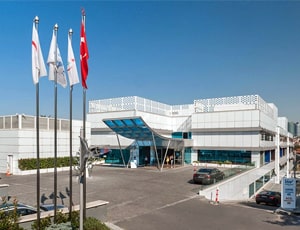
Types of ICD Combo Device (Only Surgery) in Liv Hospital Ulus and its associated cost
| Treatment Option | Approximate Cost Range (USD) | Approximate Cost Range (TRY) |
|---|---|---|
| ICD Combo Device Surgery (Overall) | 8411 - 8948 | 246219 - 263241 |
| ICD with Dual-Chamber Pacemaker | 8715 - 9157 | 259967 - 272306 |
| ICD with Single-Chamber Pacemaker | 8481 - 8717 | 245798 - 261358 |
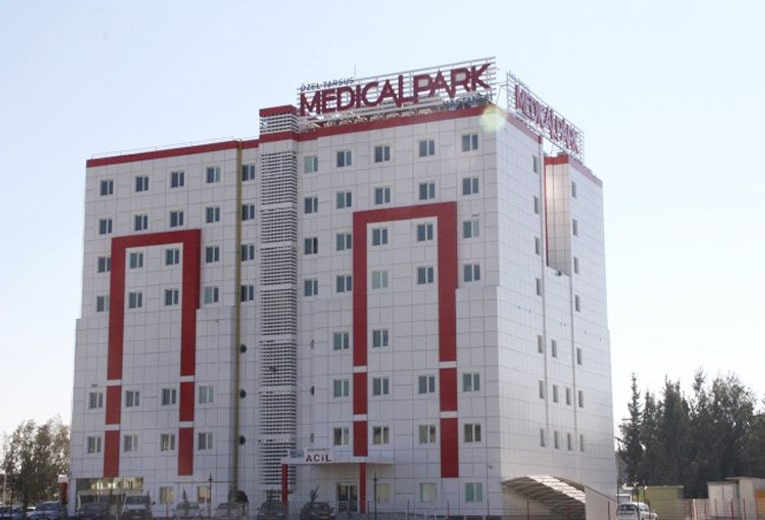
Types of ICD Combo Device (Only Surgery) in Medical Park Tarsus Hospital and its associated cost
| Treatment Option | Approximate Cost Range (USD) | Approximate Cost Range (TRY) |
|---|---|---|
| ICD Combo Device Surgery (Overall) | 8174 - 8768 | 251168 - 258618 |
| ICD with Dual-Chamber Pacemaker | 8863 - 9316 | 264151 - 279016 |
| ICD with Single-Chamber Pacemaker | 8402 - 8701 | 247473 - 266030 |
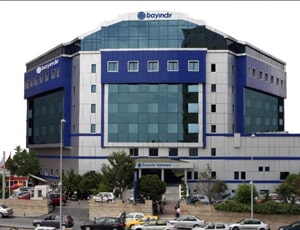
Types of ICD Combo Device (Only Surgery) in Bayindir Healthcare Group and its associated cost
| Treatment Option | Approximate Cost Range (USD) | Approximate Cost Range (TRY) |
|---|---|---|
| ICD Combo Device Surgery (Overall) | 8339 - 8852 | 245505 - 259000 |
| ICD with Dual-Chamber Pacemaker | 8804 - 9294 | 270332 - 283755 |
| ICD with Single-Chamber Pacemaker | 8364 - 8889 | 247110 - 268909 |

Types of ICD Combo Device (Only Surgery) in Acibadem Altunizade Hospital and its associated cost
| Treatment Option | Approximate Cost Range (USD) | Approximate Cost Range (TRY) |
|---|---|---|
| ICD Combo Device Surgery (Overall) | 8246 - 8633 | 254106 - 265697 |
| ICD with Dual-Chamber Pacemaker | 8847 - 9077 | 264995 - 280669 |
| ICD with Single-Chamber Pacemaker | 8215 - 8842 | 250196 - 261572 |

Types of ICD Combo Device (Only Surgery) in Acibadem International Hospital and its associated cost
| Treatment Option | Approximate Cost Range (USD) | Approximate Cost Range (TRY) |
|---|---|---|
| ICD Combo Device Surgery (Overall) | 8487 - 8905 | 247750 - 259846 |
| ICD with Dual-Chamber Pacemaker | 8911 - 9167 | 267807 - 275713 |
| ICD with Single-Chamber Pacemaker | 8178 - 8896 | 246130 - 261245 |

Types of ICD Combo Device (Only Surgery) in Acibadem University Hospital Atakent and its associated cost
| Treatment Option | Approximate Cost Range (USD) | Approximate Cost Range (TRY) |
|---|---|---|
| ICD Combo Device Surgery (Overall) | 8461 - 8888 | 256205 - 265634 |
| ICD with Dual-Chamber Pacemaker | 8596 - 9345 | 261457 - 273839 |
| ICD with Single-Chamber Pacemaker | 8268 - 8799 | 247919 - 259675 |
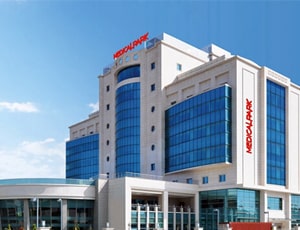
Types of ICD Combo Device (Only Surgery) in Medical Park Elazig Hospital and its associated cost
| Treatment Option | Approximate Cost Range (USD) | Approximate Cost Range (TRY) |
|---|---|---|
| ICD Combo Device Surgery (Overall) | 8232 - 8927 | 253638 - 259386 |
| ICD with Dual-Chamber Pacemaker | 8969 - 9119 | 268274 - 272144 |
| ICD with Single-Chamber Pacemaker | 8474 - 8782 | 248611 - 265650 |
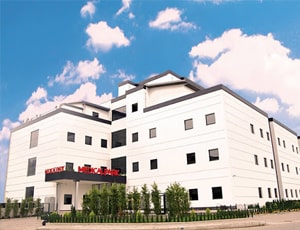
Types of ICD Combo Device (Only Surgery) in Medical Park Ordu Hospital and its associated cost
| Treatment Option | Approximate Cost Range (USD) | Approximate Cost Range (TRY) |
|---|---|---|
| ICD Combo Device Surgery (Overall) | 8140 - 8654 | 253840 - 266363 |
| ICD with Dual-Chamber Pacemaker | 8635 - 9089 | 267272 - 279657 |
| ICD with Single-Chamber Pacemaker | 8496 - 8752 | 249273 - 260933 |
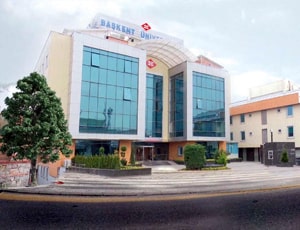
Types of ICD Combo Device (Only Surgery) in Baskent University Istanbul Hospital and its associated cost
| Treatment Option | Approximate Cost Range (USD) | Approximate Cost Range (TRY) |
|---|---|---|
| ICD Combo Device Surgery (Overall) | 8391 - 8611 | 256364 - 260992 |
| ICD with Dual-Chamber Pacemaker | 8694 - 9211 | 260634 - 274043 |
| ICD with Single-Chamber Pacemaker | 8336 - 8963 | 252756 - 262032 |
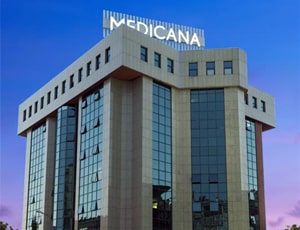
Types of ICD Combo Device (Only Surgery) in Medicana Camlica Hospital and its associated cost
| Treatment Option | Approximate Cost Range (USD) | Approximate Cost Range (TRY) |
|---|---|---|
| ICD Combo Device Surgery (Overall) | 8322 - 8662 | 250220 - 263623 |
| ICD with Dual-Chamber Pacemaker | 8633 - 9032 | 268764 - 274641 |
| ICD with Single-Chamber Pacemaker | 8292 - 8839 | 250040 - 265884 |

Types of ICD Combo Device (Only Surgery) in Memorial Sisli Hospital and its associated cost
| Treatment Option | Approximate Cost Range (USD) | Approximate Cost Range (TRY) |
|---|---|---|
| ICD Combo Device Surgery (Overall) | 8445 - 8775 | 252765 - 263967 |
| ICD with Dual-Chamber Pacemaker | 8934 - 9071 | 259954 - 281478 |
| ICD with Single-Chamber Pacemaker | 8200 - 8667 | 252206 - 265958 |
Implantable cardioverter defibrillator (ICD) is a small device placed under the skin to keep track of the heartbeat. A defibrillator implant is useful in preventing sudden death and abrupt cardiac arrest in patients who may not have suffered a heart attack, but are at its risk.
A heart fibrillator surgery can be required in adults, teens and in unfortunate cases, children too. Any cardiologist can recommend defibrillator procedure if an individual suffers from arrhythmia. An ICD pacemaker is very good at treating life-threatening problems, such as ventricular arrhythmias.
Some forms of arrhythmias make the ventricles either quiver frequently or beat too fast. People who have earlier suffered from a ventricular arrhythmia before or had a heart attack that previously damaged the electrical system of the heart are at a higher risk of ventricular arrhythmias in the future.
People who have fortunately survived a sudden cardiac arrest (SCA) are often recommended an ICD pacemaker surgery. Even for those who have specific heart conditions that put them at higher risk for SCA can also be recommended defibrillator procedure. Some of the common causes of arrhythmias include the following:
Some of the noticeable symptoms of arrhythmia include the following:
An ICD pacemaker device monitors the heartbeat at every moment and if required, it delivers an extra beat or gives an electrical shock to restore a normal heart rhythm. Another implantable device may be combined with it to control abnormal heart rhythms.
The defibrillator procedure can be performed on an outpatient or inpatient basis. Depending on the experience and preference of the doctor, the procedure can slightly vary.
After removal of jewelry and accessories and change into the hospital gown, the patient is required to empty their bladder. An IV line is started in the hand or arm before the procedure so that medicines and fluids can be injected later.
The patient is closely monitored before the surgery and it is necessary to inform about any discomfort that is felt after AICD placement. Some amount of chest pain is normal. Vital signs are monitored and the easily digestible food is given for a few days.You will be discharged when the breathing and heart rate stabilizes. Within a few weeks or so, you can resume a normal life with some restrictions on movement as advised by the doctor. Driving has to be avoided until the doctor approves of it.
Specific instruction has to be followed regarding bathing and dressing. Regular evaluation of ICD is required at a certain frequency. A duly filled card will be given at the time of discharge, which must be carried by you. You must inform the security personnel during airport screening or mall screening that you have an ICD installed. You must also avoid being close to heavy motors or strong magnetic and electromagnetic fields.
You must notify your doctor if you feel feverish, palpitations, or have severe chest pain during the recovery period or at any point of time. You must discard completely discard the habit of carrying the mobile in your chest pocket.
Ask your healthcare adviser for the best multiple options and choose the one that meets your expectations
On an average, ICD Combo Device (Only Surgery) in Turkey costs about $7500. Many multispeciality hospitals in Turkey that are SAS, JCI, TEMOS certified are approved and most sought after for treating international patients with ICD Combo Device (Only Surgery)
The ICD Combo Device (Only Surgery) package cost in Turkey varies from one hospital to another and may offer different benefits. The top hospitals for ICD Combo Device (Only Surgery) in Turkey covers all the expenses related to the pre-surgery investigations of the candidate. The treatment cost usually includes the expenses related to hospitalization, surgery, nursing, medicines, and anesthesia. Post-surgical complications, new findings and delayed recovery may have an impact on the total ICD Combo Device (Only Surgery) cost in Turkey.
There are several best hospitals for ICD Combo Device (Only Surgery) in Turkey. The top hospitals for ICD Combo Device (Only Surgery) in Turkey include the following:
After discharge from the hospital, the patient has to stay for another 14 days in the country for complete recovery. This is important to ensure that the surgery was successful. During this time, control and follow-up tests take place to check for medical fitness.
Apart from the ICD Combo Device (Only Surgery) cost, there are a few other daily charges that the patient may have to pay. These are the charges for daily meals and accommodation outside the hospital. These charges starts from USD 50 per person.
There are many cities that offer ICD Combo Device (Only Surgery) in Turkey, including the following:
Patients can also avail to attend a video teleconsultation with the ICD Combo Device (Only Surgery) surgeon in Turkey. the following are some of the top doctors offering ICD Combo Device (Only Surgery) in Turkey:
| Doctor | Cost | Schedule Your Appointment |
|---|---|---|
| Dr. Ahmet Anil Sahin | USD 160 | Schedule Now |
The patient is supposed to stay at the hospital for about 2 days after ICD Combo Device (Only Surgery) for monitoring and care. During the recovery, the patient is carefully monitored and control tests are performed to see that everything is okay. If required, physiotherapy sessions are also planned during recovery in hospital.
The average rating for ICD Combo Device (Only Surgery) hospitals in Turkey is 3.6. This rating is calculated on the basis of different parameters such as attitude of the nurses, cleanliness, quality of food and the pricing policy.
There are more than 28 hospitals that offer ICD Combo Device (Only Surgery) in Turkey. Such clinics have the required infrastructure and a dedicated unit where patients can be treated. Apart from good services, the hospitals are known to follow all standard and legal guidelines as dictated by the local medical affairs body or organization.
Some of the best medical specialists for ICD Combo Device (Only Surgery) in Turkey are: